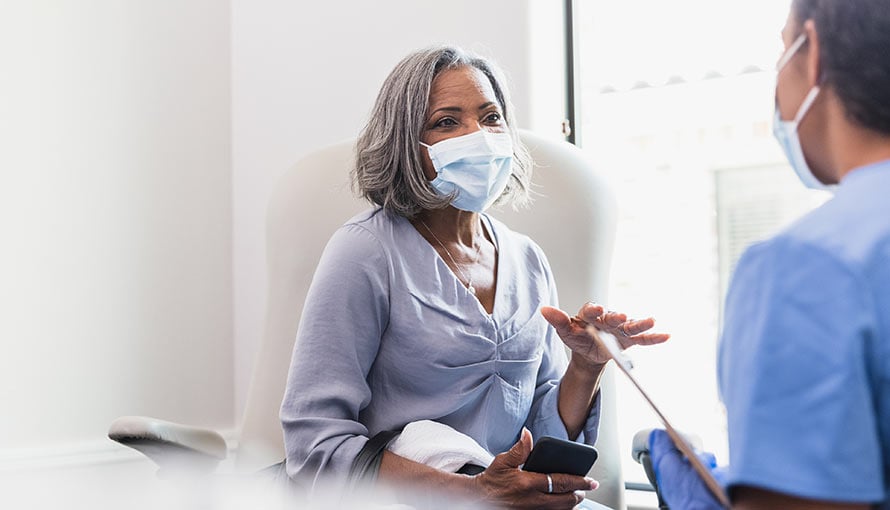Ovarian Cancer FAQs

Ovarian cancer affects nearly one out of every 75 women. It usually does not develop until later in life, and most women who develop it have already reached menopause. However, women of all ages should know what the condition is, what the most common symptoms are and when to see a doctor.
Additionally, women who have been diagnosed with ovarian cancer are encouraged to learn more about their treatment and supportive care options. It’s normal to feel confused by the abundance of information, but it can be beneficial – both physically and emotionally – to be actively engaged in the treatment process.
Frequently asked questions about ovarian cancer
Whether you’ve just been diagnosed with ovarian cancer, are concerned about your personal cancer risk level or are looking to support a loved one through the treatment process, the following FAQs can help:
- What is the difference between an ovarian cyst and ovarian cancer?
- Is there a connection between breast cancer and ovarian cancer?
- Questions to ask after an ovarian cancer diagnosis
- How do you get tested for ovarian cancer?
- What can I do to decrease my risk of ovarian cancer?
- What is the no. 1 risk factor for ovarian cancer?
- Is there a genetic predisposition for ovarian cancer?
- What are the side effects of chemotherapy for ovarian cancer?
- Does ovarian cancer always affect your menstrual cycle?
- How likely is ovarian cancer to spread elsewhere?
- Do ovarian cancer symptoms come on suddenly?
- Are ovarian cancer symptoms different at each stage?
- Why does ovarian cancer cause bloating?
- What to do when you are diagnosed with ovarian cancer
- What are some less common symptoms of ovarian cancer?
- What is metastatic ovarian cancer?
- Where does metastatic ovarian cancer spread to?
- What happens when ovarian cancer spreads?
- How long are chemo treatments for ovarian cancer?
- How can you find out if you have ovarian cancer?
- Can ovarian cysts cause lower back pain?
Consult with an oncologist at Moffitt Cancer Center
If you have additional questions about ovarian cancer, you’re encouraged to consult with an experienced oncologist at Moffitt Cancer Center. The surgeons, medical oncologists, radiation oncologists and supportive care providers in our Gynecologic Oncology Program exclusively treat cancers of the female reproductive system and are available to answer any questions you might have.
To request an appointment, call 1-888-663-3488 or submit a new patient registration form online.
